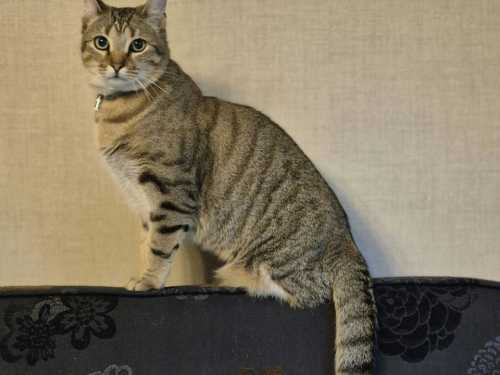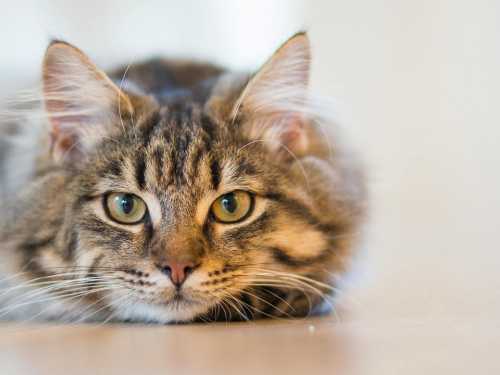
Many of us use chlorine-containing products to disinfect plumbing and more.
These products have a strong chlorine smell and are unpleasant for humans. But some cats love the smell of bleach: their pupils dilate, they purr, and they roll on the floor.
Why do pets react like this?
Cats have a highly developed sense of smell. It is widely believed that chlorine contains substances that mimic cat sex pheromones. However, this theory has no scientific support. A more likely explanation is that the strong chemical smell of chlorine simply overstimulates a cat's sensitive olfactory receptors, causing unusual behavior that resembles euphoria.
This reaction is a manifestation of strong arousal from an unusual and intense odor, rather than a direct hormonal response related to reproduction.
Outwardly, this behavior may resemble a reaction to catnip, but the causes of its occurrence are completely different.
How dangerous is chlorine for cats?
If a cat gets to the bottle with chlorine, it may lick or sniff it. And this is dangerous for the pet's health.
How does chlorine poisoning occur:
- the cat licked a substance off the floor immediately after mopping the floor or licked the bottle cork;
- the pet inhaled chlorine vapors in a closed room;
- The cat tasted the dry chlorine powder by tearing open the package.
Signs of chlorine poisoning in a cat
Signs of poisoning for those owners whose cats love chlorine:
- loss of appetite, complete refusal to eat;
- vomiting and diarrhea;
- cramps in the limbs;
- the cat is wheezing (damaged ligaments);
- the presence of ulcers in the mouth;
- saliva flows profusely, the fur on the chest is wet;
- abdominal pain: the cat sits curled up;
- foaming at the mouth;
- the coat has darkened dramatically;
- the cat smells like chlorine;
- cough, shortness of breath, difficulty breathing;
- profuse tearing, sharp deterioration of visual perception, redness of the eyes and eyelids;
- watery nasal discharge;
- apathy;
- loss of consciousness.
Owner's actions in case of pet poisoning
If signs of poisoning are detected, the first step should be to call a veterinarian immediately! Do not try to give the animal water, milk or any other substances without consulting a doctor. In case of poisoning with caustic substances, this may worsen the animal's condition. Vomiting should never be induced without consulting a veterinarian, as this may cause repeated burns to the esophagus.
Be sure to contact the veterinary clinic or the doctor on duty.
The room where the chlorine leak occurred should be ventilated. The pet's eyes and mouth, on the advice of a veterinarian, can be rinsed thoroughly and quickly with running water.
Then, get your pet to the vet as soon as possible, where they will provide emergency medical care.
If you have the option of calling a veterinary ambulance to your home, it is better to use this service. The bill may be in minutes.
Be careful, because pets are like children.





